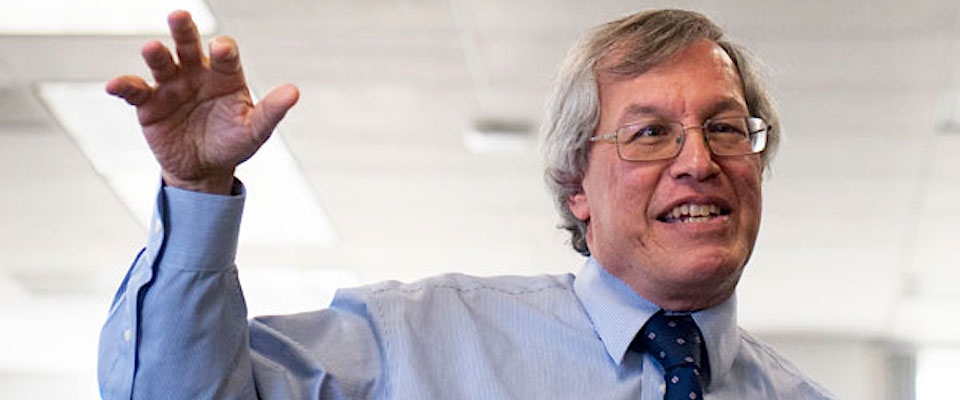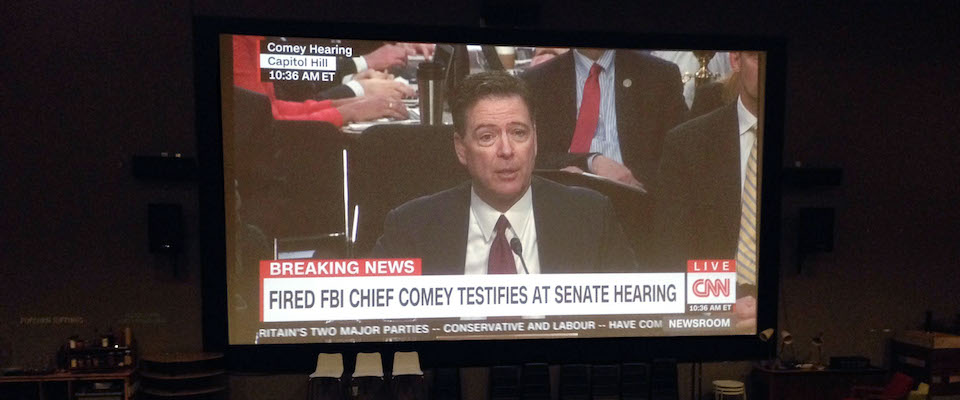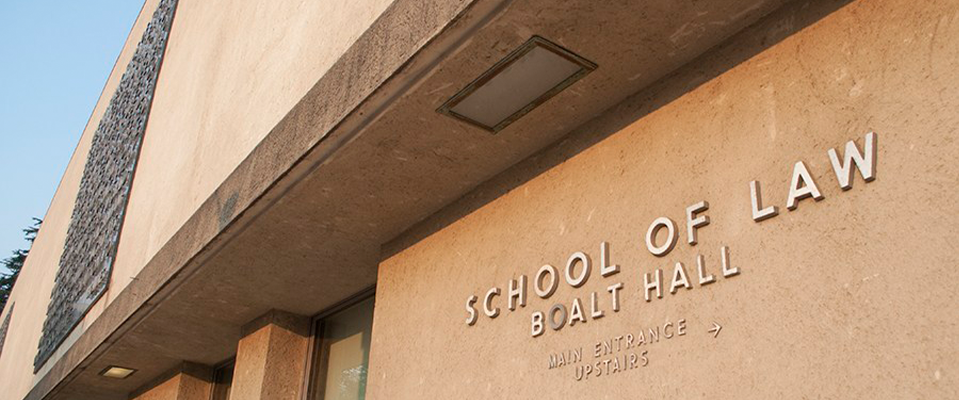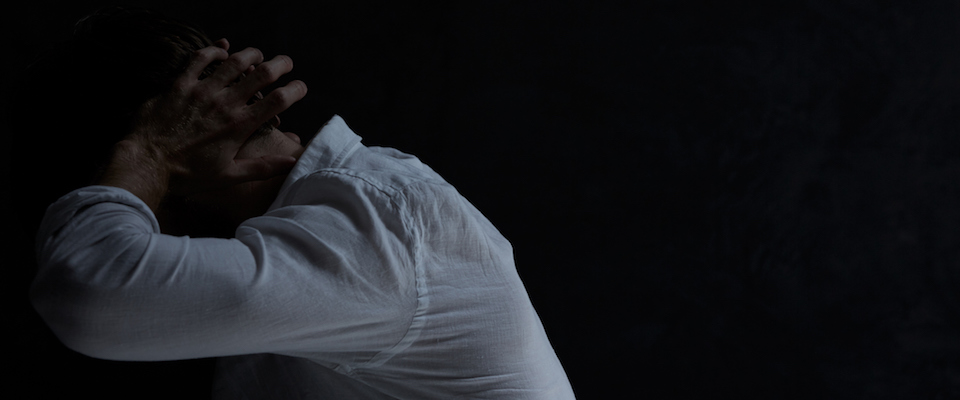Erwin Chemerinsky, the incoming dean at UC Berkeley Law School and a constitutional law scholar of national repute, has been ruminating much of late on the ongoing shenanigans in Washington and their implications for the Republic. Chemerinsky weighed in with CALIFORNIA late last week and shared some of his thoughts, including his take on reports that President Donald Trump might attempt to invoke executive privilege to prevent former FBI director James Comey from testifying before the Senate Intelligence Committee this week.
Does the President actually have the authority to prevent Comey, now a private citizen, from discussing Trump’s alleged demands for a fealty pledge and cessation of the FBI’s investigations into now cashiered National Security Advisor Michael Flynn?
Since that initial news broke, the White House has backed off, and now indicates it’s not going to interfere with Comey. Whether that’s true or a head fake remains to be seen. In any case, the possibility has legal pundits wrangling over standing. Specifically, does the President actually have the authority to prevent Comey, now a private citizen, from discussing Trump’s alleged demands for a fealty pledge and cessation of the FBI’s investigations into now cashiered National Security Advisor Michael Flynn?
Chemerinsky, the founding dean of the University California, Irvine School of Law, said that Trump does in fact have such authority—but only within limits.
“He could invoke it, and it could stick,” said Chemerinsky. “Executive privilege is important because the President needs to receive candid advice without fear that confidence will be violated. But in United States v. Nixon, the Supreme Court ruled that executive privilege is not absolute. It can be overridden if there’s a critical need by a branch of government, such as access to information by the courts, or for information subpoenaed by Congress.”

Any attempt by Trump to invoke executive privilege could also be checked if special counsel Robert Mueller, now investigating possible meddling by Russia in the 2016 election, decides he needs Comey’s testimony, said Chemerinsky.
That case has particular resonance for Chemerinsky; he was an undergraduate during Nixon’s presidency, and remembers the Watergate investigation and Nixon’s subsequent resignation vividly. The current ferment in Washington, he observed, demonstrates some parallels with that time.
But if Trump’s machinations are generating eerie echoes of Watergate, there is, said Chemerinsky, a salient and dramatic difference.
“The underlying crime that forced Nixon to resign was obstruction of justice,” said Chemerinsky. “Nixon told the FBI not to investigate Watergate because it was putatively a CIA matter. That constituted obstruction. If Trump tries to stop the FBI from investigating Russian interference in the election, that would also be obstruction of justice.”
But if Trump’s machinations are generating eerie echoes of Watergate, there is, said Chemerinsky, a salient and dramatic difference.
“It’s how it’s playing out,” Chemerinsky said. “It’s the pace. Watergate took about two years. We had the burglary in June of 1972, and then there was a slow unveiling of revelations, and the Watergate hearings in 1973, and then the judiciary impeachment hearings, and finally, Nixon resigned in 1974. Now the revelations are coming far more quickly. It seems like every day there’s a new one, something dramatic. But how long will it take before there’s a resolution? Who knows?”
Chemerinsky describes Trump as unique to the presidency, a person wholly unlike any other who has held the office. And he doesn’t necessarily mean that in a complimentary way.
 “United States v Nixon makes it clear that any material required by a special counsel for possible criminal prosecution would qualify for an override,” Chemerinsky said.
“United States v Nixon makes it clear that any material required by a special counsel for possible criminal prosecution would qualify for an override,” Chemerinsky said.
“We’ve never seen a president like this,” Chemerinsky said. “He has less experience in government than any president in American history. People cite Eisenhower, Reagan, and George W. Bush [as similarly lacking in government experience], but they’re not at all comparable. Eisenhower had an illustrious military career; he commanded the Allied forces in World War II. Both Reagan and Bush were governors. Trump has never held office, he’s never been in the military, and his inexperience is reflected in his style of governance.”
Moreover, said Chemerinsky, Trump’s blithe disregard for facts is fomenting chaos within his administration and beyond.
“His lack of concern for the truth is undermining everything his administration attempts,” Chemerinsky said, “and he’s finding it difficult to accomplish anything substantive. What happened to the supposed wire-tapping by Obama? Or the five million ‘illegal immigrants’ who reputedly committed voter fraud? It’s one thing after another, all false, all creating disarray.”

“Yiannopoulos has as much right to speak on campus as anyone else,” said Chemerinsky, who has co-authored a book on campus free speech with UC Irvine Chancellor Howard Gillman that will be published later this year by Yale University Press. “Our position is that all views can be expressed freely on campus. The only thing that might change that would be a threat to public safety. As I understand it, the cancellation [of a Cal February speaking engagement by Yiannopoulos] was due to a demonstration that at one point involved 150 masked individuals, some of whom were throwing Molotov cocktails. That constituted a public safety emergency that needed to be addressed.”
Parallels have been drawn between the campus unrest of the Nixon and Trump administrations, but Chemerinsky thinks the comparisons are specious.
Parallels have been drawn between the campus unrest of the Nixon and Trump administrations, but Chemerinsky thinks the comparisons are specious.
“Vietnam dominated everything in the late Sixties and early Seventies, and that galvanized college students to a tremendous degree,” he said. “I remember the most common conversation I had with my peers at that time is what we’d do if we were called up. Get drafted? Enlist? Go to jail? Go to Canada? It was immediate and real, and that’s why the demonstrations were so huge, dwarfing anything we’re seeing today. It wasn’t just about ideology. It was also about an imminent threat to individual lives.”
Unlike some legal analysts, Chemerinsky thinks the bedrock institutions of government will weather the Trump presidency. But the impacts of even a single Trump term will be profound, he warned, and shouldn’t be minimized.
Trump’s imprint will endure long after his term ends due to his judicial picks for the federal courts, including the Supreme Court.
“Many people weren’t sure where Trump would be ideologically, but he has proven himself more conservative than any president in my lifetime in terms of both policy and cabinet choices,” Chemerinsky said. “There is no one farther to the right than [EPA Chief] Scott Pruitt, [Attorney General] Jeff Sessions and [Secretary of Education] Betsy DeVos. Their avowed aims are going to create immense legal and constitutional challenges.”
Moreover, observed Chemerinsky, Trump’s imprint will endure long after his term ends due to his judicial picks for the federal courts, including the Supreme Court.
Chemerinsky noted that recently confirmed Supreme Court Justice Neil Gorsuch is 49 years old, “…meaning that if he stays on the bench until he’s 90, as many Supreme Court justices do, he’ll be there until 2058. Just consider the differences between Gorsuch and Merrick Garland [Barack Obama’s stymied choice for the Supreme Court]. Gorsuch will vote to overturn Roe v Wade. Garland would’ve voted to maintain it. Gorsuch will move to eliminate affirmative action, while Garland would have supported its continuance. Gorsuch will be much less aggressive on environmental protection than Garland would have been. And that’s just one justice. Trump will likely have at least one more appointment to the Supreme Court, not to mention his many appointments to the lower courts. The impacts of his presidency are going to be felt long after he leaves the planet.”





















